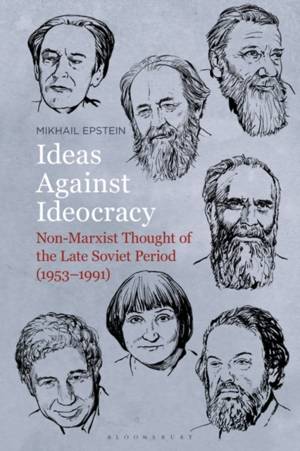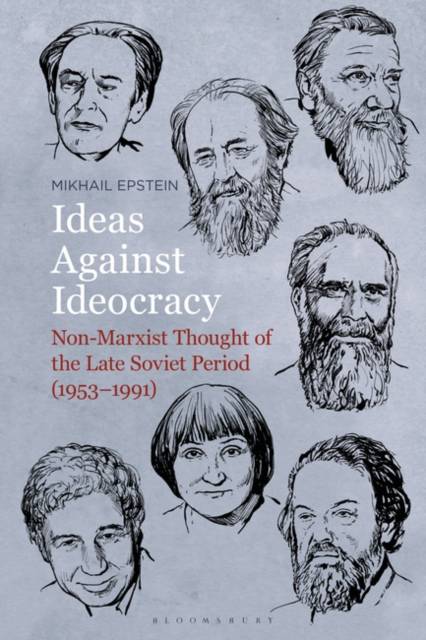
- Afhalen na 1 uur in een winkel met voorraad
- Gratis thuislevering in België vanaf € 30
- Ruim aanbod met 7 miljoen producten
- Afhalen na 1 uur in een winkel met voorraad
- Gratis thuislevering in België vanaf € 30
- Ruim aanbod met 7 miljoen producten
Zoeken
Ideas Against Ideocracy
Non-Marxist Thought of the Late Soviet Period (1953-1991)
Mikhail Epstein
Paperback | Engels
€ 69,45
+ 138 punten
Omschrijving
Winner of the Aldo and Jeanne Scaglione Prize for Studies in Slavic Languages and Literatures (awarded by the Modern Languages Association)
This groundbreaking work by one of the world's foremost theoreticians of culture and scholars of Russian philosophy gives for the first time a systematic examination of the development of Russian philosophy during the late Soviet period. Countering the traditional view of an intellectual wilderness under the Soviet regime, Mikhail Epstein provides a comprehensive account of Russian thought of the second half of the 20th century that is highly sophisticated without losing clarity. It provides new insights into previously mostly ignored areas such as late-Soviet Russian nationalism and Eurasianism, religious thought, cosmism and esoterism, and postmodernism and conceptualism. Epstein shows how Russian philosophy has long been trapped in an intellectual prison of its own making as it sought to create its own utopia. However, he demonstrates that it is time to reappraise Russian thought, now freed from the bonds of Soviet totalitarianism and ideocracy but nevertheless dangerously engaged into new nationalist aspirations and metaphysical radicalism. We are left with not only a new and exciting interpretation of recent Russian intellectual history, but also the opportunity to rethink our own philosophical heritage.Specificaties
Betrokkenen
- Auteur(s):
- Uitgeverij:
Inhoud
- Aantal bladzijden:
- 280
- Taal:
- Engels
Eigenschappen
- Productcode (EAN):
- 9781501380914
- Verschijningsdatum:
- 20/04/2023
- Uitvoering:
- Paperback
- Formaat:
- Trade paperback (VS)
- Afmetingen:
- 152 mm x 229 mm
- Gewicht:
- 376 g

Alleen bij Standaard Boekhandel
+ 138 punten op je klantenkaart van Standaard Boekhandel
Beoordelingen
We publiceren alleen reviews die voldoen aan de voorwaarden voor reviews. Bekijk onze voorwaarden voor reviews.








